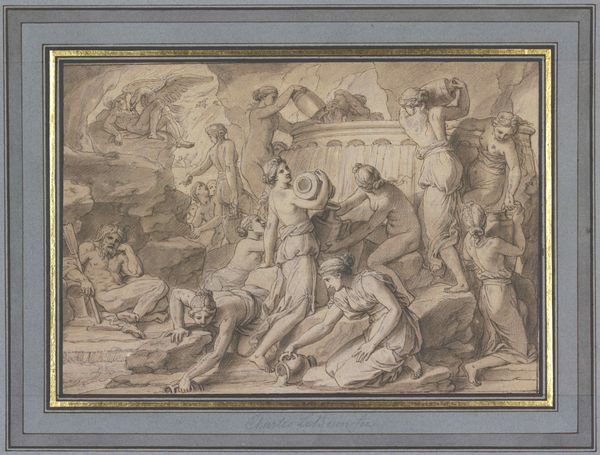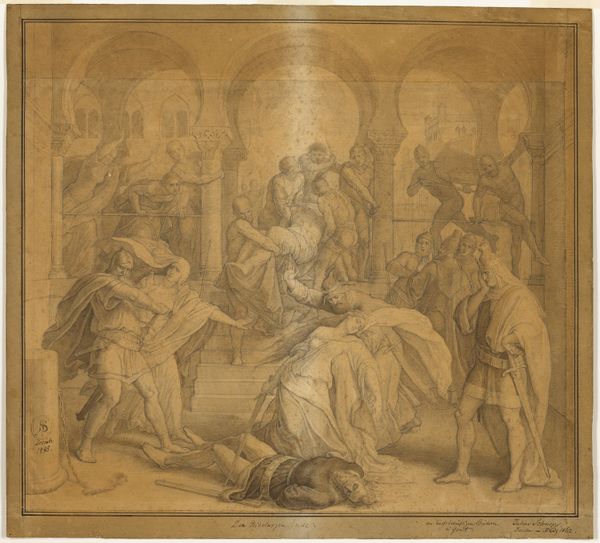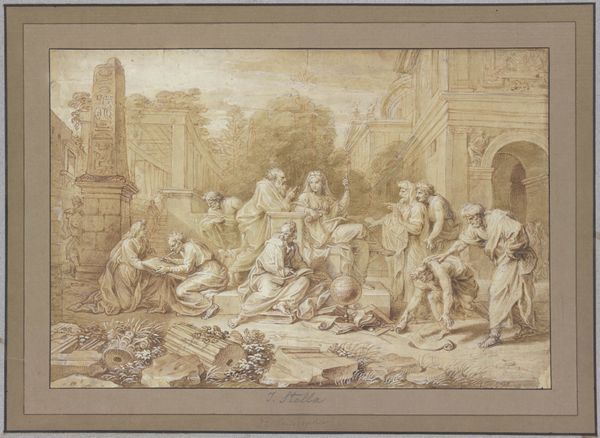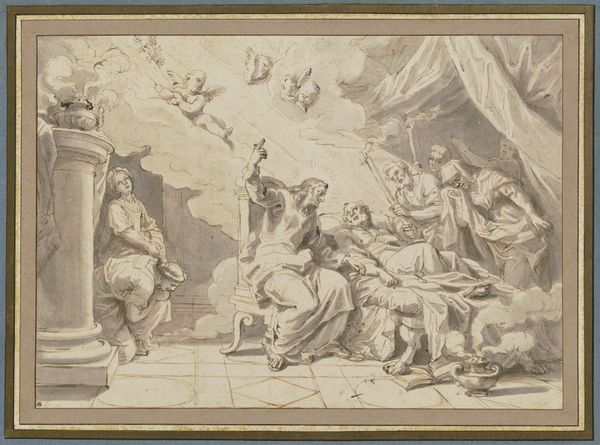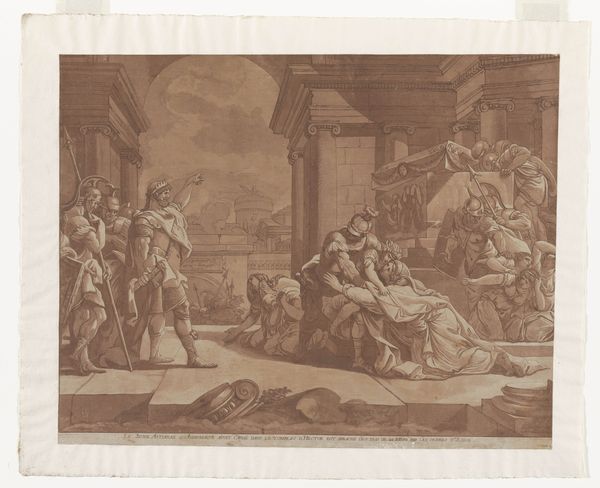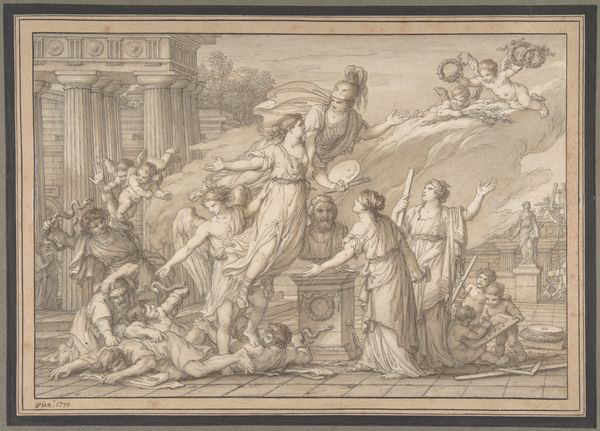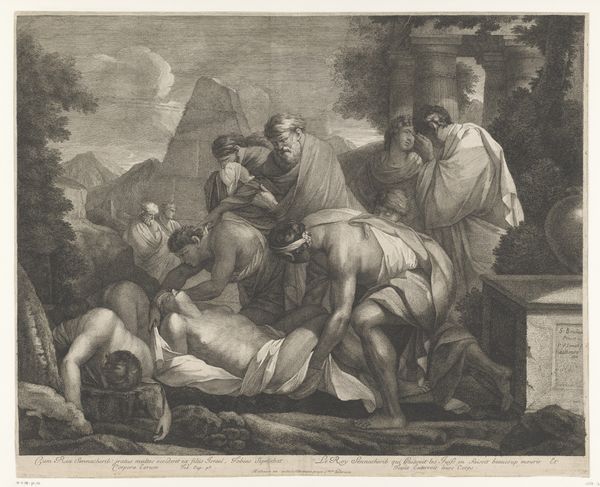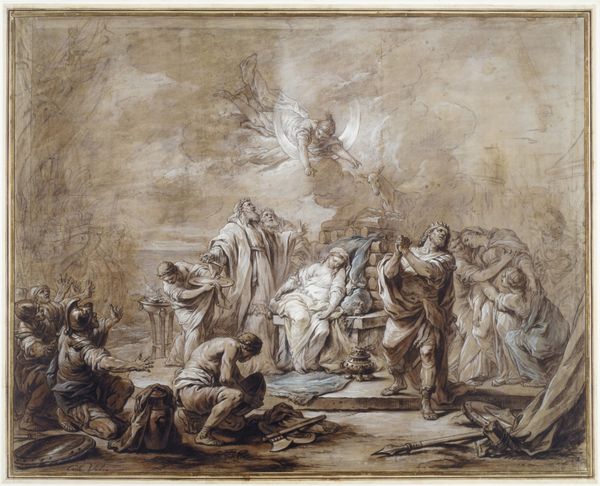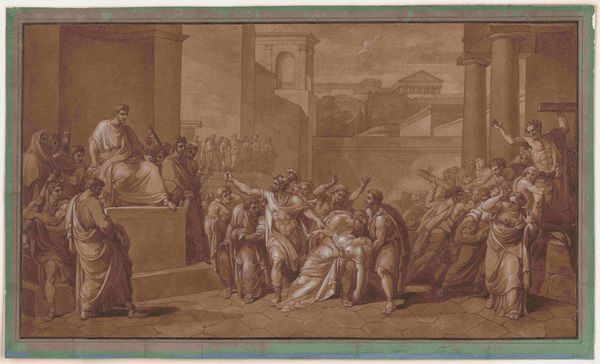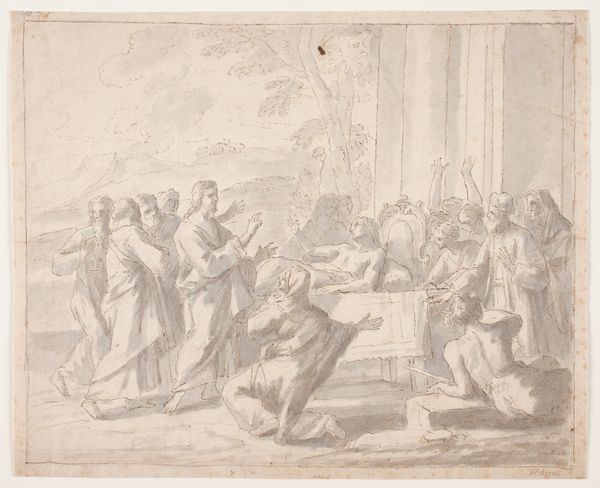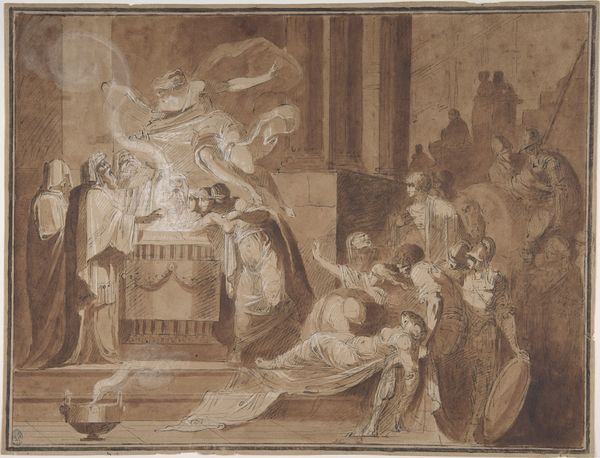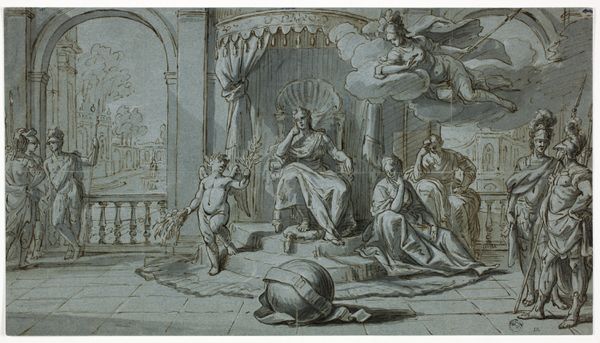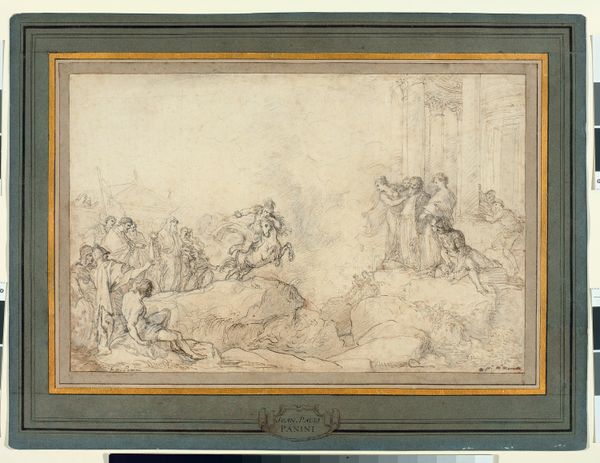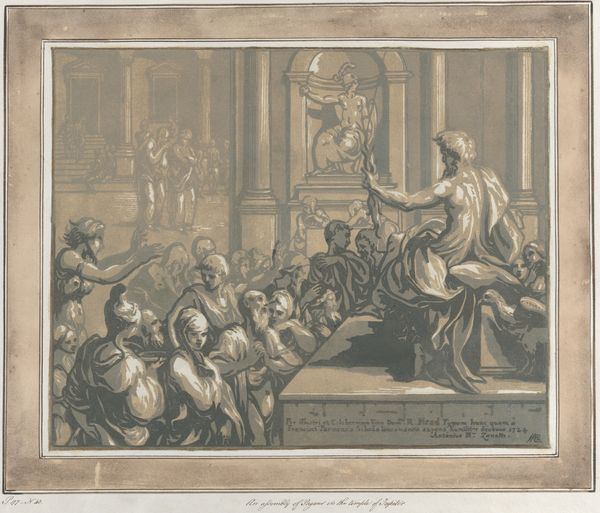
Horatius Slaying his Sister Camilla after the Defeat of the Curiatii c. 1790
0:00
0:00
drawing, print, paper, ink, charcoal
#
drawing
#
neoclacissism
#
narrative-art
# print
#
charcoal drawing
#
figuration
#
paper
#
charcoal art
#
oil painting
#
ink
#
france
#
charcoal
#
history-painting
#
academic-art
Dimensions: 532 × 774 mm (sight)
Copyright: Public Domain
Editor: This drawing, "Horatius Slaying his Sister Camilla after the Defeat of the Curiatii" by Etienne Barthélémy Garnier, created around 1790, depicts a really intense moment. It's pretty dramatic. What social narratives do you see being explored here? Curator: Absolutely, it's crucial to consider this work through the lens of its socio-political context. The narrative of Horatius, celebrated for his patriotism in Roman history, masks a more troubling issue. What does it say about power when Camilla, a woman, is sacrificed for the sake of nationalistic ideals? Editor: So, you're saying it's less about glorifying heroism and more about questioning the cost of that heroism, particularly for women? Curator: Precisely. Neoclassical art often used historical subjects to promote specific values. But here, Garnier unintentionally reveals a disturbing undercurrent of patriarchal power and its brutal consequences. Notice how Camilla is presented--vulnerable, silenced. Editor: The expressions of anguish on the women definitely contrast with Horatius's stoic pose. Did Garnier intend to critique these power structures, or was it more subtle than that? Curator: That's the crux of the matter. Whether intentional or not, the image provides a platform for us to examine these power dynamics. We need to look at this drawing through the lens of gender, identity, and the use of historical narrative for political ends. How does this resonate with contemporary struggles? Editor: It’s definitely unsettling to see how these historical narratives still influence our perceptions of heroism and sacrifice today. Curator: Exactly, by critically engaging with works like this, we can better understand and challenge the legacies of patriarchal narratives embedded within our cultural landscape. Editor: This really changes how I see the work. Thanks for opening my eyes to those complex issues.
Comments
No comments
Be the first to comment and join the conversation on the ultimate creative platform.
